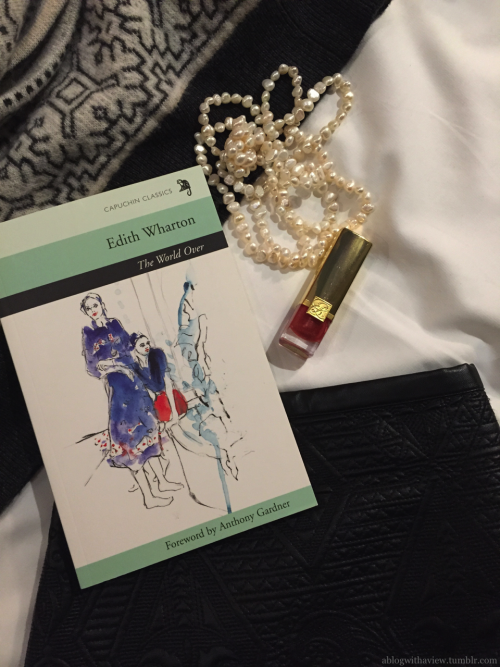Le Passé Composé - Masterpost
Le Passé Composé - Masterpost
The passé composé is the most commonly used past tense in French.
It is formed using the following formula:
subject + avoir or être (conjugated in the present tense) + past participle
Conjugating avoir and être
In the present tense, avoir (to have) is conjugated as follows:
je - ai ¹ | nous - avons
tu - as | vous - avez
il/elle/on - a | ils/elles - ont ²
In the present tense, être (to be) is conjugated as follows:
je - suis | nous - sommes
tu - es | vous - êtes
il/elle/on - est | ils/elles - sont
Forming the past participle
For regular -er verbs, drop -er and add -é (parler → parlé)
For regular -re verbs, drop -re and add -u (vendre → vendu)
For regular -ir verbs , drop -ir and add -i (finir → fini)
Forms of past participles:
Nearly all past participles use the following endings to indicate gender and number:
__Masculine__|__Feminine____
Singular | é / u / i | ée / ue / ie
Plural | és / us / is | ées / ues / ies
Common irregular past participles:
être (to be) → été
faire (to do, make) → fait ³
offrir (to offer) → offert ³
ouvrir (to open) → ouvert ³
naître (to be born) → né
mourir (to die) → mort ³
avoir (to have) → eu
boire (to drink) → bu
connaître (to know) → connu
coire (to believe) → cru
devoir (must; to owe) → dû
lire (to read) → lu
pleuvoir (to rain) → plu
pouvoir (can; to be able to) → pu
recevoir (to receive) → reçu
savoir (to know) → su
voir (to see) → vu
vouloir (to want) → voulu
venir (to come) → venu
mettre (to place) → mis ³
prendre (to take) → pris ³
conduire (to drive) → conduit ³
dire (to say)→ dit ³
écrire (to write) → écrit ³
asseoir (to sit down) → assis ³
Irregular verbs formed from other irregular verbs use the same base for their past participles:
mettre → mis; permettre (to permit, allow) → permis
ouvrir → ouvert; couvrir (to cover) → couvert
When to use avoir or être
The majority of French verbs use avoir in the passé composé. Default to avoir, barring the following exceptions:
The following verbs usually use être as its auxilary verb ⁴ in the passé composé. They often have to do motion, but not all verbs of motion use être . They therefore must be memorized.
aller - to go
arriver - to arrive
descendre ⁵ - to descend / go downstairs
entrer ⁵ - to enter
monter ⁵ - to climb
mourir - to die
naître ⁵ - to be born
partir ⁵ - to leave
passer - to pass
rester - to stay
retourner - to return
sortir ⁵ - to go out
tomber ⁵ - to fall
venir ⁶ - to come
All pronominal verbs, without exception, use être in the passé composé.
Agreement in the passé composé
Agreement with avoir
The past participle normally agrees in gender and number with the direct object (or direct object pronoun) if it precedes the verb, barring the exceptions that follow.
J’ai lu les lettres. (I read the letters.)
Je les ai lues. (I read them.)
J’ai ouvert les lettres. (I opened the letters.)
Les lettres qui j’ai ouvertes sont lá-bas. (The letters that I opened are over there.)
Exceptionally, the past participle does not have to agree with the direct object in causative constructions or with certain constructions with verbs of perception ⁷.
Je les a fait lire les lettres. (I made them read the letters.)
Les lettres que j’ai vu écrire. (I saw the letters get written.)
Agreement with être
The past participle must always agree with the subject with non-pronominal verbs that use être.
Elle est allée à la poste pour déposer les lettres. (She went to the post office to drop off the letters.)
Vous êtes parties de la poste avec les lettres. (You (f.pl.) left the post office with the letters.)
The past participle must agree with the reflexive pronoun of pronominal verbs when the reflexive pronoun is the direct object. It does not agree with the indirect object.
Elle s’est asisse à son bureau quand elle lisait la lettre. (She sat herself down at her desk when she was reading the letter.
Nous nous sommes envoyés des lettres. (We sent each other letters.)
Negating in the passé composé
Add the standard ne… pas construction around avoir or être, excluding the subject and past participle. Include objective and adverbial pronouns that precede the auxiliary verb ⁸. When using inversion, include the subject and the verb between the negative constructions.
Je n’ai pas écrit ces lettres (I did not write those letters.)
Je ne les ai pas écrits ces lettres. (I did not write them.)
Je ne suis pas allé à la poste pour déposer les lettres. (I did not go to the post office to drop off the letters.)
Je n’y suis pas allé. (I did not go there.)
N’êtes-vous pas retournés de la poste ? (Did you return from the post office?)
Questioning in the passé composé
Questions are formed in the passé composé using the inversion or est-ce que constructions.
Avez-vous déja écrit les lettres ? (Do you write the letters yet?)
Est-ce qu’ils sont allés à la poste ? (Did they go to the post office?)
Pourquoi n’avez-vous pas envoyé les lettres ? (Why did you not send the letters?)
Questions can be asked informally using standard SVO word order with a question tone at the end of the sentence.
Tu as déja envoyé les lettres ? (You sent the letters already?)
Translating the passé composé
The passé composé can be translated as [verb + ed], [to have + past participle] or [did / do + verb].
J’ai écrit les lettres. (I wrote / have written / did write the letters.)
¹ je and ai are elided as j’ai.
² Be sure to liaise the s and o to distinguish it from sont, the third person plural form of être.
³ These verbs use irregular past participle forms to indicate gender and number:
Fait, ouvert, offert, conduit, écrit, dit, and mort use the following:
_______|__Masculine__|__Feminine__
Singular | ∅ | e
Plural | s | es
Mis, pris, and assis use the following:
_______|__Masculine__|__Feminine__
Singular | ∅ | e
Plural | ∅ | es
⁴ when used intransitively. When they take a direct object, they use avoir instead.
⁵ These verbs can add re- to make verbs that indicate that the action was repeated; these derivatives use être as well.
⁶ venir has the following derivatives: devenir (to become), parvenir (to reach, achieve), and revenir (to come again, come back); these use être as well.
⁷ The six verbs of perception are apercevoir (to catch a glimpse of), écouter (to listen) entendre (to hear), regarder (to watch), sentir (to feel), and voir (to see); the past participle never agrees with the direct object of the infinitive; the past participle agrees with the subject of the infinitive when it precedes the verb.
⁸ Objective and adverbial pronouns precede the auxiliary verb and succeed the subject.
More Posts from Theblogofwildfellhall and Others

I want to say I can't believe my dad's girlfriend would set me up for theft, but here we are.

My latest Wharton find.
neurodivergents tag all the special interests/hyperfixations u went through this year
french: school vocabulary 📚
♡ Basics:
une école - school (in general), grade school
un écolier, une écolière - grade school student
un collège - middle school, junior high
un collégien, une collégienne - middle school student
un lycée - high school
un lycéen, une lycéenne - high school student
une université - college, university
un étudiant, une étudiante - college student
un professeur, un/e prof (informal)* - teacher
*In France, the word professeur is always masculine, even if the teacher is a woman.
♡ School Years and Ages:
Cours Préparatoire (CP) = 6 years old
Cours Elémentaire (CE1) = 7 years old
Cours Elémentaire (CE1) = 8 years old
Cours Moyen (CM1) = 9 years old
Cours Moyen (CM2) = 10 years old
Sixième = 11 years old
Cinquième = 12 years old
Quatrième = 13 years old
Troisième = 14 years old
Seconde = 15 years old
Première = 16 years old
Terminale = 17 years old
♡ Equipment - Le Matériel
un bureau - desk
un pupitre - student desk
un cahier - notebook
une calculatrice - calculator
un carnet - notebook
une carte - map
un classeur - binder
une craie - chalk
un crayon - pencil
des devoirs (m) - homework
un dictionnaire - dictionary
une gomme - eraser
le rétroprojecteur - overhead projector
un livre - book
la trousse - pencil case
le papier - paper
une feuille de papier - piece of paper
recto verso - front and back, both sides
un sac à dos - backpack
un stylo - pen
un tableau - chalkboard
le cartable - school bag
♡ The School:
classroom - une salle de classe
library - la bibliothèque
librarian - le/la documentaliste
hall - le hall
staff room - une salle des profs
cloakroom - le vestiaire
toilets - les toilettes
laboratory - un laboratoire
workshop - un atelier
gym - le gymnase
the playground - la cour de récréation
sports field - le terrain de sports
headmaster - le directeur
headmistress - la directrice
secretary - la secrétaire
dining hall - la cantine
corridor - le couloir
caretaker - le concierge
school yard - la cour
♡ Subjects - Les Matières
English - l'anglais
Mathematics - les mathématiques
Modern Languages - les langues vivantes
French - le français
Spanish - l'espagnol
German - l'allemand
Greek - le grec
Latin - le latin
Physical Science - les sciences physiques
Physics - la physique
Chemistry - la chimie
Biologie - la biologie
Technology - le travail manuel éducatif (TME)
Woodwork - le travail sur bois
Art - le dessin
Computing (IT) - l'informatique
Music - la musique
Geography - la géographie
History - l'histoire
Physical Education (PE) - l'éducation physique et sportive (EPS)
Religious Education (RE) - l'instruction religieuse
♡ School Life
lesson - un cours
pupil - une élève
to spell - épeler
to learn - apprendre
to discuss - discuter
essay - la rédaction
school uniform - l’uniforme
bell - le sonnerie
homework - les devoirs
timetable - un emploi de temps
to take notes - prendre des notes
term/semester - un trimestre
detention - le retenue
study period - l'étude
un examen - test
♡ Classroom activities and instructions
lever la main - to put one’s hand up
poser une question - to ask a question
écrivez - write down
écoutez - listen to
regardez - look at
regardez attentivement - look closely
lisez - read
lisez attentivement - read carefully
…le texte - the text
…l'enregistrement - the recording
…la conversation - the conversation
…la vidéo - the video
…l'écran - the screen
ouvrez - open
…votre cahier - your workbooks
…votre livre - your (text) books
…le manuel - the textbook
cochez la bonne réponse - tick the right answer
je vais vous donner un devoir - I’m going to give you some homework
c'est pour - it’s for
il faut le rendre - you’ve to hand it in
…demain - tomorrow
…la semaine prochaine - next week
…après les vacances - after the holidays
allez, c'est parti! - come on, let’s start!
faites moins de bruit, s'il vous plaît! - quieten down, please!
taisez-vous! - be quiet!





“It’s heavenly.”


And this year for Halloween I am a lazy pirate
Rrrrrrr
From Beginner to Intermediate: an intense plan for advancing in language
Introduction
I've studied Spanish at school for 3 years and now I'm at a low B1 level. I can actually understand pretty well while listening or reading but I can't communicate fluently.
This plan will include vocabulary build up, some grammar revision, a lot of listening, reading and writing. And could be used for the most languages, not only Spanish.
Plan
Every day:
Conjugate one verb in present, past and future tenses
Make a list about 10 - 30 words long
Create flashcards with them and start learning them (I use Quizlet for flashcards)
Revise yesterday's set of flashcards
2-3 times a week:
Read an article or a few pages from a book
Write a few sentences about anything in your target language
Listen to one episode of podcast (at least one)
Once a week or every two weeks:
Watch a movie in your target language, preferably animated movie as the language used there is easier. You can watch with subtitles
Grammar exercises
Translate some short text
Once a month:
Write something longer, like an essay or report, on chosen topic
Additionally:
Talk to yourself, to your friends, to your pets
Text with someone
Look at the transcription while listening to the podcast for second time
Repeat what you hear (in podcast or movie)
Check words you don't know from the listening and reading
Read out loud
Listen to music in your target language - you can even learn the text and sing along
Watch YouTube in your target language
Change your phone language to the one you're learning
Think in you target language!!!
***This is very intense plan for self-learners, you don't have to do all of these things in the given time. Adjust it to your own pace. I'll try to stick to this, if I have enough time.***
Do I want to call somebody out or nah?
-
 thepageobsessed liked this · 2 years ago
thepageobsessed liked this · 2 years ago -
 rhythmofherdrum liked this · 2 years ago
rhythmofherdrum liked this · 2 years ago -
 wybright reblogged this · 3 years ago
wybright reblogged this · 3 years ago -
 normanistyping liked this · 3 years ago
normanistyping liked this · 3 years ago -
 paleflowerbasketballdean liked this · 3 years ago
paleflowerbasketballdean liked this · 3 years ago -
 eleminateme reblogged this · 3 years ago
eleminateme reblogged this · 3 years ago -
 waxandwane27 liked this · 4 years ago
waxandwane27 liked this · 4 years ago -
 tactlessnights liked this · 4 years ago
tactlessnights liked this · 4 years ago -
 eisbergg liked this · 4 years ago
eisbergg liked this · 4 years ago -
 blkwag liked this · 4 years ago
blkwag liked this · 4 years ago -
 betts-b liked this · 4 years ago
betts-b liked this · 4 years ago -
 perfectcashherosoul-blog liked this · 4 years ago
perfectcashherosoul-blog liked this · 4 years ago -
 thepreppypug liked this · 4 years ago
thepreppypug liked this · 4 years ago -
 stalebreadisstillbread liked this · 4 years ago
stalebreadisstillbread liked this · 4 years ago -
 hologram-evil liked this · 4 years ago
hologram-evil liked this · 4 years ago -
 m-squared24 liked this · 4 years ago
m-squared24 liked this · 4 years ago -
 retroflexy liked this · 4 years ago
retroflexy liked this · 4 years ago -
 elpidaeonia reblogged this · 4 years ago
elpidaeonia reblogged this · 4 years ago -
 kendigokyuzunuyarat liked this · 4 years ago
kendigokyuzunuyarat liked this · 4 years ago -
 janericci512-blog liked this · 4 years ago
janericci512-blog liked this · 4 years ago -
 eyrestudies reblogged this · 5 years ago
eyrestudies reblogged this · 5 years ago -
 ellalangblrr liked this · 5 years ago
ellalangblrr liked this · 5 years ago -
 bookwormedathena liked this · 5 years ago
bookwormedathena liked this · 5 years ago -
 f3005t liked this · 5 years ago
f3005t liked this · 5 years ago -
 remediesforroses liked this · 5 years ago
remediesforroses liked this · 5 years ago -
 destine-langue reblogged this · 5 years ago
destine-langue reblogged this · 5 years ago
Emma. 27. A blog for Classic Literature, language learning, flowers, and aesthetic
117 posts